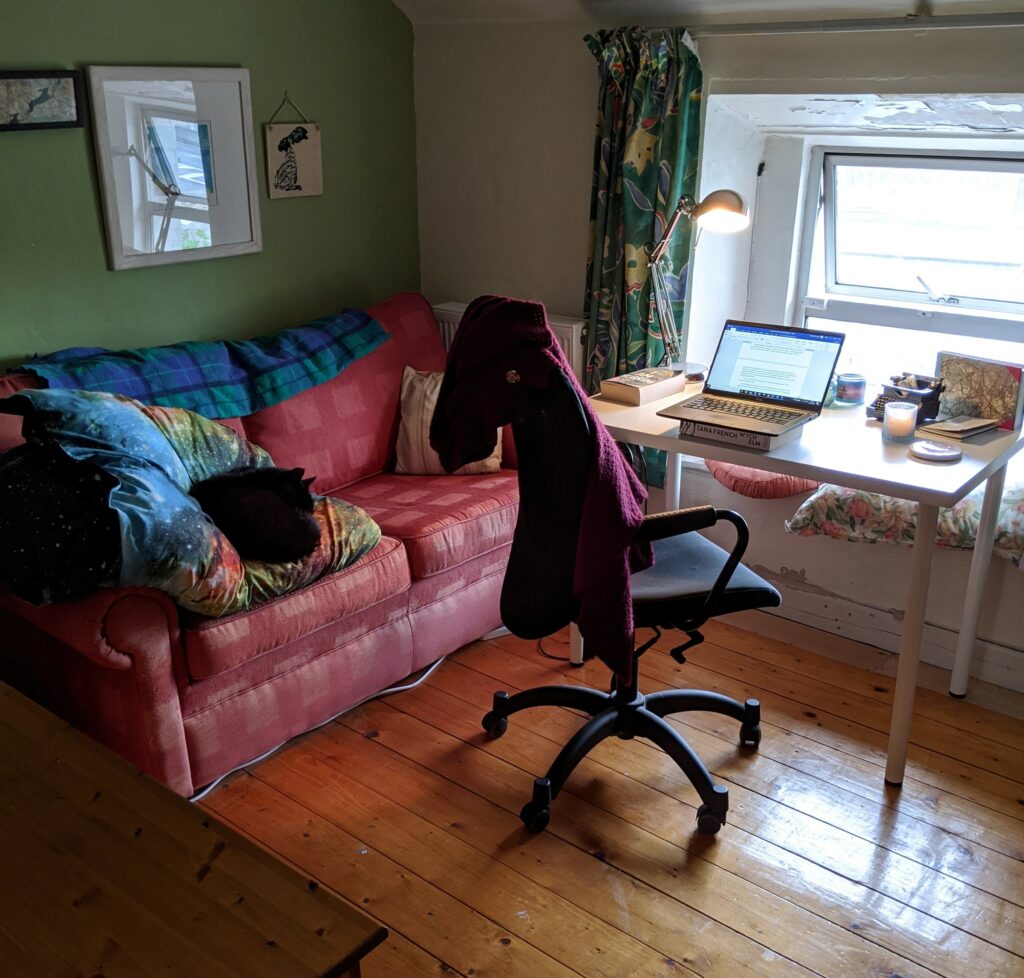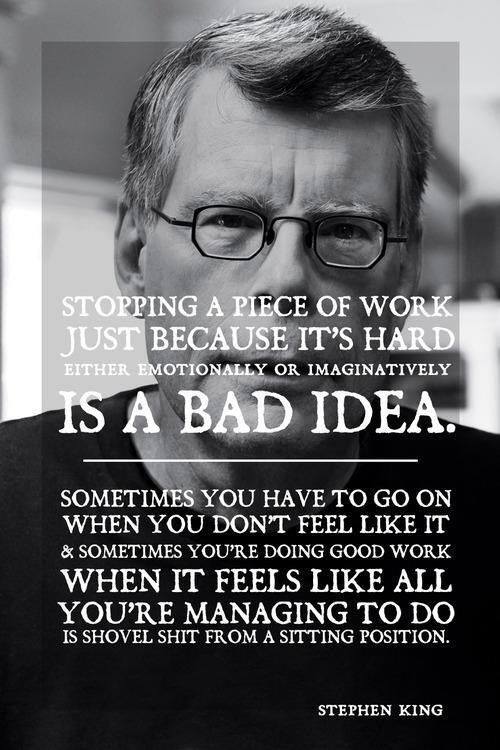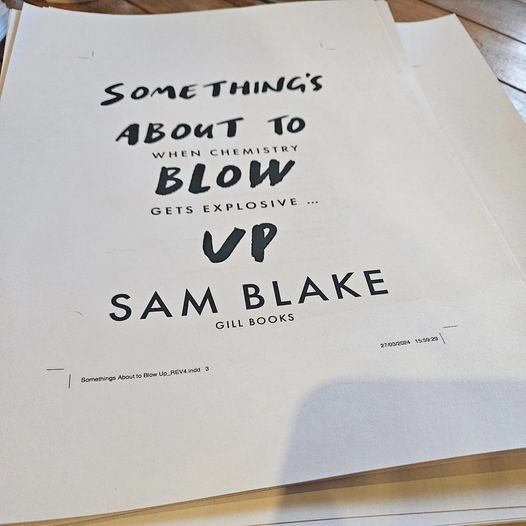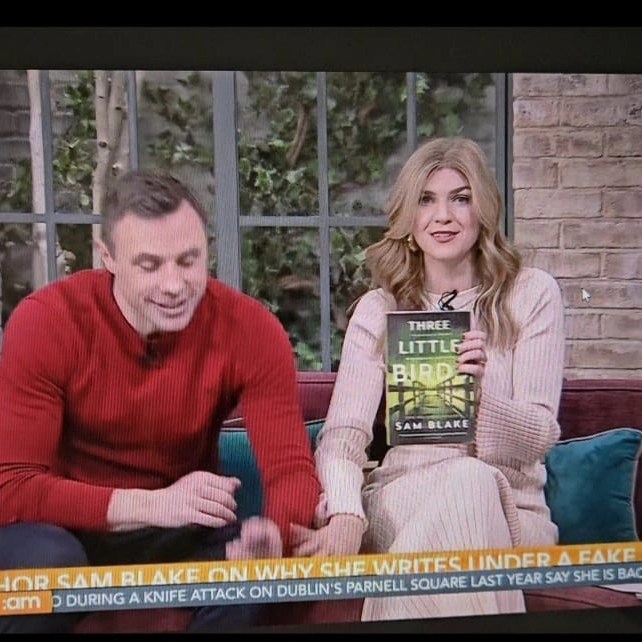The Dark Room is out now, my fifth book and second standalone; High Pressure is a spiderweb thriller that links the series and standalones and is a digital exclusive available to preorder now, and Remember My Name is my next standalone thriller out in print in January 2022 with Corvus Atlantic Books. I’ve been writing constantly for the past 20+ years – as well as building three companies and parenting. There have been lots of blips along the way, but I’ve learned that understanding why something is happening, enables you to look for a solution.
I’ve two theories – first off, anxiety stifles creativity hugely. Try not to self sabotage by worrying about submitting or getting published or rejection, before you’ve even written your book (plenty of time to worry about that later!)
Don’t put yourself under pressure to reach a word count – the incredible Joanne Harris aims to write just 300 words a day. Enjoy the process and let your creativity flow. No word written is ever wasted, whatever you write moves you forwards. And your first draft will be a hot mess – that’s what you WANT it to be. Once you know the story, then you can polish – the book you pick up in a bookshop has been through many, many drafts and that’s even before it gets to the editor.
I’m also a huge believer that it’s your subconscious mind that creates the magic and does all the heavy lifting in writing. It’s your subconscious mind where characters develop and plots form – it’s the place that generates the ideas.
And learning to listen to that inner voice is vital to your writing success.
As international bestseller Sinead Moriarty says in the the National Emerging Writer Programme video series I made a few years ago, “if it doesn’t feel right, it’s because it’s probably wrong.”
We all have days where writing is tough, and some days where we just get totally stuck. I believe that ‘writer’s block‘ is our subconscious mind protesting about something. It’s putting the brakes on because you’ve gone wrong somewhere and you’re heading off down a path that will result in a lot of words that may be wasted. The error could be something a character has said that’s out of character, or something you’ve mentioned that noone in your book could possibly know about because it hasn’t happened yet (we’ve all done that). It could be any manner of things – perhaps a character is dominating your story too much, or you’ve made a mistake in your research (or recollection) that could derail your plan. Perhaps your timeline has gone off grid and it’s snowing in July or someone is going to school at 2am. Go back to where it was working and take a look at what’s there.
Look for the thing that has sent you off course.
When I was writing my second book In Deep Water, I got completely stuck. I was about two thirds of the way through the first draft and I couldn’t work out what was going to happen next. It was literally as if my creative mind had shut down. When I went back to where it had been working, I found a mistake, but I also realised that that mistake had been caused by a PREVIOUS mistake. My subconcious mind was having the equivalent of a hissy fit and telling me to STOP RIGHT THERE!
Procrastination and not being able to get started writing is a different thing entirely to writer’s block. All writers procrastinate – it’s amazing how much housework suddenly needs doing, or emails need answering when it’s time to write. I find if I’ve got too much time on my hands, I spend more time not writing than actually getting stuck in – I’d be a total disaster if I went to a writers retreat for a week!
If I’ve only got twenty minutes I’m MUCH more focused, and I’ve learned to write on the move. In fact, I find my office desk the worst place to write, as there are so many other things that need doing that distract me. I love to escape to coffee shops or hotels to write instead (maybe not in 2020 *heads desk*). I trained myself early on to shut out external noise. I find it hugely useful to have music playing to drown out the practical stuff going on in my head – hearing a specific soundtrack or piece of music triggers the creative side of my brain to get working.
If you’re the type of person who writes better in a ‘safe’ space, creating a writing space for yourself that essentially makes your subconcious comfy is ideal. Because I can’t write outside the house at the moment, I’ve set up a desk in the spare bedroom and created a writing space for myself. Many writers have subconcious (that word again) habits that help them write – perhaps lighting candles or listening to a particular piece of music (I have scented candles on my writing desk). These are all triggers that you can use to train your creative mind that it’s time to get started. Triggers are incredibly powerful – look at your good writing days and your bad ones, is there something you are doing on one and not the other?

Mine is a borrowed chair from one of the kids, €20 IKEA desk, scented candle, occasional cat.
Creating a routine of some sort (not necessarily writing every day, in the real world that’s not always possible) helps hugely – light a candle, go for a walk, have a coffee, whatever will help your brain switch on.
If you do get stuck, tune in to your subconscious and see what’s really happening with your character’s lives – and their timelines – have you created an impossible situation?! A bit of ground work – creating a sound scaffolding to support your story, is very useful to avoid simple blunders, like assuming US university terms dates are the same as ours, or that the Stena ferry still leaves from Dun Laoghaire (which I had an issue with in Little Bones).
Writing is tough enough, so make things easier for yourself by keeping good character notes, doing a little bit of planning or research and removing the hazards that you may trip on.
And set yourself achieveable objectives – international bestseller Joanne Harris aims to write 300 words a day – we can all do that. Hazel Gaynor says to herself that she’ll just sit down for 15 minutes – and creating that narrow window of opportunity spurs her to actually write in those 15 minutes, and they often turn into more.
10 Tips for Beating Writer’s Block
- Listen to your subconscious mind. If you’re stuck there’s a reason for it, go back to where it was working to find out what it is.
- If you feel like something isn’t working, it probably isn’t – no matter how much you love it, listen to your inner voice and cut it (or your editor will, guaranteed).
- Procrastination and block are two totally different things.
- Creating a writing routine will help you focus.
- Identify triggers that will give your writing brain a sign that it’s time to switch on and use them to train your brain to deliver.
- Listen to other writers and steal the bits that work for you to develop your own routine. (These writer video interviews that I did for Writing.ie, with my agent Simon Trewin, are packed full of nuggets of gold).
- Understand your writing space and what works for you – create a little writing corner if that’s what you need. Keep it clear of clutter or that clutter will interfere with your ability to focus.
- Set yourself achieveable objectives – 300 words works for Joanne Harris, and is one of those nuggets of gold you’ll find in the writer interviews linked above)
- Don’t compare yourself to other writers, we’re all different. Find and be yourself. Don’t let anxiety stifle your creativity.
- Try to remove the trip hazards! Do your research, and even if you’re not a plotter, have some idea of your direction/what your story is about. Don’t worry about getting published or rejection before you’ve finished your book (see point above!)

Happy Writing!


